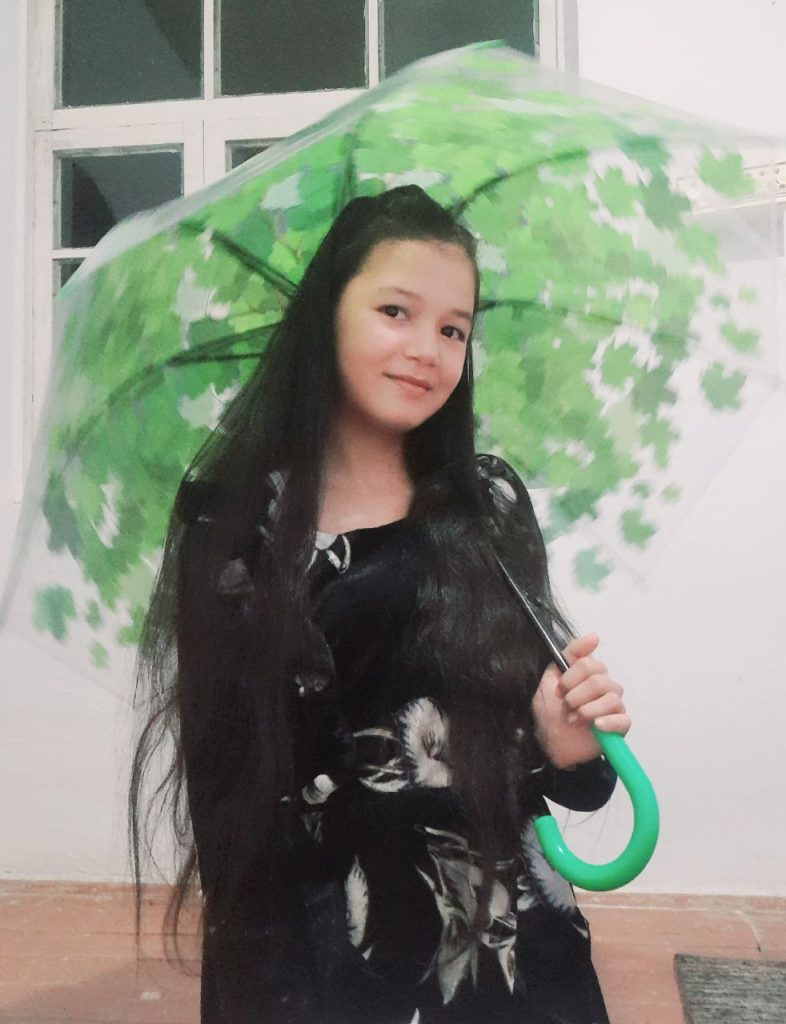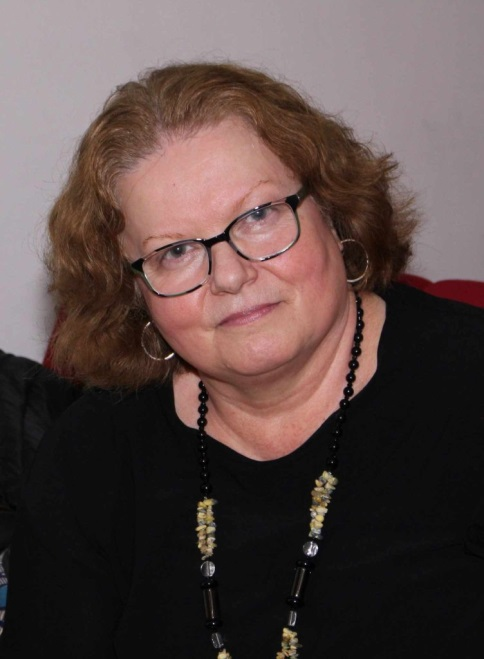Mass Murder Capitalism and the Infinity Trap
Author’s Note: I wrote this essay originally in the fall of 2020 and publish it here with a few cosmetic changes and updates. It seems even more relevant today, after the assassination of Brian Thompson, CEO of United Healthcare—a figure who was an example of a vicious healthcare system where it has finally been proven that when healthcare is driven by whatever “the market will bear” and the desire to increase “shareholder value” at whatever cost, the purveyors of that system will, at some point, irresistibly, ask the following question of their customers:
“How much is your health, your spouse’s health, or your children’s health, worth to you”?
And who will be surprised to hear the answer: “My health? My spouse’s health? My children’s health? Why, they are worth everything to me.”
And few will be shocked by the response from the boardrooms of the healthcare “industry”:
“Oh it is, is it? It’s worth everything to you? Really? Well then, good people—in that case, we’ll take everything from you! And thank you very, very much!”
It does not take long for the logic of this statement to become fully apparent when it leads to the next equally candid exchange, heard in the confines of many a winterized boardroom:
“We who are in the healthcare industry are in the business of making money—are we not?”
“Indeed we are.”
“And our job is to make even more money in every quarter than we did in the quarter before it, is it not?”
“Our shareholders will certainly let us know it if we do not!”
“And we have two ways, and only two ways, of making more money—we sell more of our product, or we decrease our expenses. Is this not so?”
“Never a truer word was spoken!”
“We can decrease our expenses by, for example, laying off workers.”
“And a good thing too!”
“Now, protecting the health of our customers costs money.”
“Indeed it does!”
“So—what, gentlemen, if we did not? After all, we can’t save everybody all the time even with every procedure under the sun, from aspirin to brain surgery. And we never pretended we could do so. Just read over our contracts!”
“You’re right there! And we’d save a lot of money!”
“We’d make a lot of money, you mean. But to ask the question is to answer it. Is it our problem if our customers, those innocent boobies, forgot to read the fine print in the policies they bought from us—the fine print that tells them we do not guarantee payment for all or indeed for any medical procedure we do not, in our infallible judgment, thoroughly and completely approve of? No! So, if we deny covering any given medical procedure, and they suffer, is it our fault?”
“Of course not!”
“If we deny covering any given medical procedure, and they go bankrupt, is it our fault?”
“Never!”
“If we deny covering any given medical procedure, and they die, is it our fault!”
“What a perfectly ridiculous idea! (And anybody who claims otherwise we’ll sue to the ground for endangering our good name, our reputation, and, above all, our profits!)!”
“Exactly! They should have read their contract—and if they didn’t like it, they were FREE to go elsewhere—even though every healthcare insurance contract contains, by an extraordinary coincidence, exactly the same stipulations as ours does!”
(The board roars with laughter.)
One sentence below begins as follows: “We surveyed the death toll over the last half-dozen decades and more: from the tobacco industry to the opioid crisis, the fossil-fuel to the gun industry, arms manufacturers to social media….” I would now make a substantive change: “We surveyed the death toll over the last half-dozen decades and more: from the tobacco industry to the opioid crisis, the fossil-fuel to the gun industry, arms manufacturers, to social media, to our crippled, and crippling, healthcare system….”
*
A friend and I took a walk across downtown San Francisco that autumn day. We were wearing masks and keeping (at least most of the time) a medically correct six feet apart. After weeks of unbreathable air, stultifying heat, and an eerie day of pink burnt-orange skies, we could, finally, breathe cool, deep lungfuls of a briny marine breeze off the Pacific under a clear, almost tangibly blue sky.
The city was cautiously reopening: cafes and restaurants were allowed to serve at sidewalk tables or cheerful pavilions built on the streets and fenced about like little biergartens, stores could let in customers, masked and a handful at a time, and in a few weeks, museums would be allowed to reopen with safety precautions greenlighted by the city.
We had been spared the fates of many of our fellow Californians and others living in the Pacific northwest: the millions of acres of wildland burning, the conflagrations reducing towns to ashes, the thousand fleeing for their lives. It was only far south of us that the bodies of dead birds trying to migrate south for the winter were falling from the skies, littering the land by the hundreds, even thousands. The birds here, though sometimes confused by the long darkness of smoke-clogged skies and dawns that only end at sunset, were still flying, the crows that had begun to dominate neighborhoods like North Beach and Hayes Valley strutted cockily down the sidewalks.
Yet it was difficult to maintain one’s calm, even on a good day like this, when the world, even nature itself, seemed in the midst of a murderous rampage—despite the fact many of us saw it coming for decades, since humanity was its primary cause. So my friend and I both knew that our lovely walk through the perfect afternoon was only a pause in the terrifying year of 2020.
We talked about it—because what else was there to talk about? Disasters around us and a looming electoral catastrophe before us: Trump and the Republican Party had given ominous signals they were prepared to burn American democracy to the ground if they couldn’t claim victory in November. The climate crisis had been staring us in the face after two generations of denial by the powerful and their deluded followers. The economy was in a coma while billionaires became even more absurdly, obscenely, wealthy, and shareholders aspired to their condition of insouciant arrogance. There was a seemingly unstoppable run of racist police killings and, in response, increasingly violent eruptions of righteous fury. Social media were completely out of control, causing a tempest of despair in the young: loneliness, depression, bullying, suicides, at least one of these, goaded by some monster, live streamed to a shocked audience.
We surveyed the death toll over the last half-dozen decades and more: from the tobacco industry to the opioid crisis, the fossil-fuel to the gun industry, arms manufacturers to social media, and one of us suddenly came up with a truly horrifying thought: an entire layer of society is making money, deliberately, knowingly, purposely doing serious injury to people. Worse than that: they are making money from killing people . . .
There is a descriptive phrase for this that may seem on the surface sensationalist and hyperbolic. The phrase is “mass murder capitalism.” The Romans of the empire entertained the populace through, among other things, cheering on gladiators as they killed each other in the arena and applauding as Christians and other misfits were torched and crucified en masse. The modern world has learned how to kill people, when necessary to increase profits and drive up their share price. And people are killing themselves so that titans of social media can increase their stock price by a few points.
It is not altogether intentional (though one can make the argument that, in some cases, it is; how else describe the worst offenses of health insurance; of the fossil-fuel industry, which has been aware of the dangers of carbon-induced climate change since as long ago as the 1950s; or the tobacco industry, which has been murdering people for profit since the ’60s? If this is not “Auschwitz for profit,” what else might such a horrendous beast “look like”?
Yet the people who run the capitalist Juggernaut are hardly Nazis deliberately planning on murdering most of the human race so they alone can rule the earth. This catastrophic eventuality is merely part of a nefarious effect, an “unintended consequence,” of extractive capitalism. There is in fact a legal term one might use to describe it: manslaughter.
Voluntary manslaughter involves the intentional killing of another person in the heat of passion and response to provocation, whereas involuntary manslaughter is the negligent causing of the death of another person. Perhaps one might call the passionate pursuit of profits an instance of “heat of passion,” and the “provocation” leading to this crime passionel being the irritating habit of ordinary people not to get out of the way quite fast enough of the pursuit of the highest return on investment.
Then there is involuntary manslaughter: killing people without realizing it, though one might, and indeed should, have known what you were doing could very well have such lethal effect.
But what do you call it when an “unintended consequence” has been revealed for all to see; when the fact that you are murdering people for the sake of ever-increasing returns is blatant, is even flaunted—and you keep on doing it anyway?
You would then be called a murderer. A first-degree murderer. And in America we have an array of specific punishments for that, from life in prison to the death penalty.
It may have been the tobacco industry that taught modern American capitalism that, as long as what an industry manufactures makes someone a great deal of money, it can get away with harming, even killing, in the long run, many, and even most, of its customers. The fossil-fuel industry was not far behind. Big pharma has been doing it more discreetly for years, to say nothing about what is sometimes suspected of for-profit hospitals. The arms industry has always done it for a living. The gun industry, with its front organization the NRA, is almost embarrassing in a hypocrisy that even its supporters don’t pretend to believe.
My friend and I dug around a little more. We were playing a mind experiment—what had we to lose? We might even develop one or two insights worth sharing with others more qualified and knowledgeable than ourselves, who might use them to have deeper, keener, and more valuable perceptions, genuine discoveries – something the rest of us can act on, even fight for.
There seemed to be something driving both the obsession with accumulating ever greater piles of cash that has no other purpose than acquiring more cash (money is useless for anything else, being inedible, ugly, and a hopelessly poor building material)—something called “hoarding” in other circumstances, and considered a medical condition requiring discreet but firm intervention, not celebration, social power, or political control by the syndrome’s victim—and, for example, the same thing that was driving some young girls to harm themselves, even kill themselves, as a result of the amoralism and cruelty found in social media.
They all share something we decided to call “the infinity complex” or infinity trap, depending on whether the internal compulsion or the outer effect is being emphasized – in either case, it is shorthand for a perverse fact about human psychology.
It is a well-known fact that we human beings feel less pleasure acquiring something we want than pain at losing something we have. There is also an addictive pattern to acquisition: the more we get, the less pleasure we often get from each equivalent addition, though this does not keep us from obsessively seeking the old thrill we remember from the good old days of our possessing minority.
Applied to the accumulation of money, cash, or “capital,” this translates into the wealthy becoming addicted to acquiring money without ever being able to attain satisfaction: they never have “enough”; they are always trying to add one more zero to the end of their financial balances, and to feel that little thrill that still comes with it. And avoid the pain of the loss of one, no matter how many zeros there already are in that quagmire of a financial account. And it is always possible, no matter how many zeros are already there, to add one more zero. Desire for money is infinite because the number series is infinite; thus, the infinity complex. And a wealthy man can never have enough once he is caught in the infinity trap.
Social media addictions have the same psychological source: a young girl (for example), who is naturally insecure and needs reinforcement from her peers to be reassured of her own value, gets a “like” on Facebook. All well and good. She gets more likes. Even better. She really likes getting likes, soon she becomes practically addicted to them—so much so that, at a certain point, when one of her posts, for some reason or for no reason, doesn’t get any likes at all, or even gets fewer than before, she feels a moment of panic . . .
Yet, no matter how many likes she gets, she becomes increasingly frightened she will not get as many of them next time. And what if she reaches the point of getting no likes at all? (Believe me, I know this can happen; more and more of my Facebook posts these days get no likes, and even I feel vaguely hurt and unsettled by this.)
Since most of this young girl’s social interactions happen online and not face to face, as a result her feelings about her own worth, which are insecure at best during these years, hang on the very thing that is making her miserable. She may easily spiral into feelings of despair, which she tries to cure by getting more likes on all her social media. But this makes her even more desperate. The addictive cycle has been secured; she too has fallen into the infinity trap.
For evidence of this, we learned that suicide rates of older teenage girls have doubled, and for younger teenage girls have tripled, since the first successful social media platform, Facebook, was introduced.
We have created an economy, a culture, and a society that exploit this weakness in human psychology to the hilt, all because it makes a small number of people a vast amount of money. It has reached the point where it is wreaking havoc on the young; it is destroying impoverished communities across the U.S. through opioid addiction; it has affected the health of several generations of people across the globe through tobacco addiction, and now is having a similar effect through vaping; it is ruining political and cultural discourse through a perpetual tsunami of misinformation inundating the internet—and most criminally and ultimately catastrophically, it is destroying the planetary ecosystem through global heating, destruction of natural habitats, and ripping to shreds the ecological network that makes human life on earth possible.
It is painful to admit this, and many will deny it or accuse me of exaggeration, but I believe the evidence has become too clear to remain silent. The core of world capitalism, which includes the fossil-fuel industry and all other industries connected to it, many internet companies, and big pharma, has become a global criminal syndicate, a Murder Inc. beyond the most violent and brutal dreams of any organized criminal network. And we have become addicted to an entire array of triggers that feed an insatiable human capacity: the drive never to be satisfied.
We must begin by ending the neoliberal project of global capitalism now. Not tomorrow. Not next year. Not in the next decade.
Or many more will die like the flocks of birds falling from the sky in their thousands over the southwestern states, like our fellow human beings, most of them innocent of creating this catastrophe, who are perishing from the heatwaves blanketing the world every summer and crushed beneath new forms of authoritarianism driven by a toxic blend of neoliberal ideology and information technology we have lost control of, to a conclusion in social psychosis and suicidal destruction.
____
Christopher Bernard is a novelist, poet, critic, and essayist. His book The Socialist’s Garden of Verses won a PEN Oakland Josephine Miles Award in 2021.




